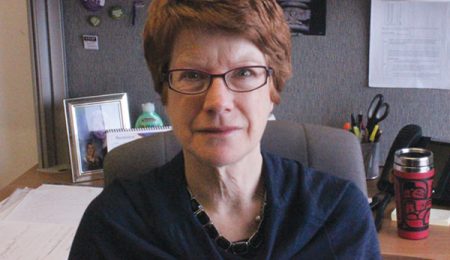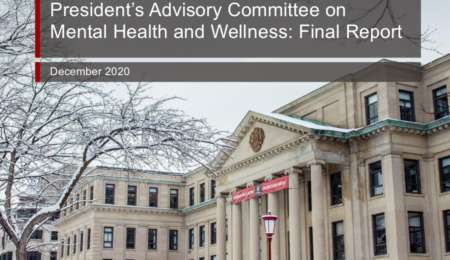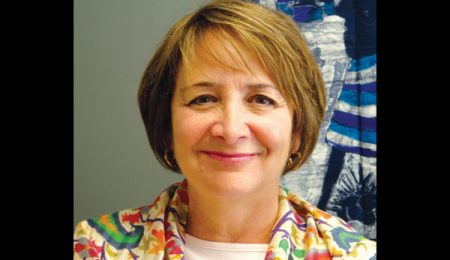When it comes to mental health the University of Ottawa has to stop reaching out and instead listen to students
Dear Editor,
The University of Ottawa has to stop asking students to reach out about their mental health struggles when they won’t listen to what they have to say. The University has to stop asking students to put themselves in vulnerable situations to become just another statistic in their wellness workshops. The University has to stop publishing reports about staff training when most of its mental health training is optional for campus advisers and professors. It also has to stop posting “Mental Health Facts” that never address how mental health conditions disproportionally affect racial, ethnic, and sexual minorities.
Instead of being asked to reach out, students need an official system where they can share their experiences.
University of Ottawa: It’s simple, all you have to do is listen to students. So hear out my story.
My first experience with prejudice at the University of Ottawa was in my first year. I was 18 years old and had just been diagnosed with Type 2 Bipolar Disorder. I was mad, sad, and above all I was scared. Technically, I was an adult, but I was confronted with a different reality for the rest of my life. One that makes you feel small and lost.
I showed up to Desmarais to ask about SASS – Student Academic Success Service. I didn’t quite know what they did, but I had googled it and found out what building to go to. I walked into Desmarais and went to the info desk on the first floor, told the receptionist that I was bipolar needed help, and was looking to find where SASS was located. Looking back, I told this staff member way too much information but I was overwhelmed. I was just looking for direction and reassurance. She told me on what floor to find SASS but then made an offhand comment that changed the course of my entire undergrad, she said: “But I don’t think they (SASS) deal with moody things – it’s for actual disabilities, like ADHD”. I left the building, I was humiliated, I didn’t belong there – My illness wasn’t valid. That experience, in my first year, was not the last instance of prejudice I would face at U of O. It would take me three years to muster the courage to go to the SASS office after that incident and it was after I received a mandatory withdrawal letter from my faculty.
I will preface by saying that I wasn’t a perfect student by any means – I made my fair share of mistakes. I put off studying until a little too late, I partied instead of staying home and doing my lab, I pulled an all-nighter when I should have been letting my body rest. I like to think that a lot of students will make at least one mistake in their undergrad, this was mine. The difference is, my body doesn’t and didn’t recover like everyone else’s. While my classmates pulled all-nighters and felt better the next day after a full night’s sleep, my brain spiralled out of control and sent me directly into a manic episode that lasted for weeks. After that, it was a depressive episode. In the blink of an eye, I lost two months of my life. During those two months, classes and schoolwork were the only consistent things in my life. Except, they weren’t really consistent. While I was manic, I had trouble keeping track of time, I couldn’t focus, I couldn’t control my impulses, I couldn’t sleep more than four hours a night…“what day is it again?”. My depressive episodes were worse. I physically couldn’t get out of bed. For days at a time, I couldn’t shower or eat. But, the University can’t help with “moody things”, right?
It took a year of academic probation and a letter of mandatory withdrawal from my faculty for me to sit down and have a very honest conversation with my doctor. My doctor showed me how to access help at SASS, which is where I met Elba. In all honesty, Elba is one of the main reasons why I’m set to graduate this year (even though she doesn’t like it when I say that). When I said I was Bipolar, she didn’t laugh and say something sarcastic about me being “moody”. She didn’t make me feel like I was incapable of getting my degree. She didn’t make me feel like my whole identity was this disorder. She helped me create a plan to get back on track. Over the summer, I appealed my mandatory withdrawal, I got as healthy as possible, I started new medication and I went to therapy. I was ready to stand up for myself and ask for help when I needed it. By September, I was back in my program and thought nothing could stop me. I didn’t know what was waiting for me.
Over the next year, I dealt with under-educated advisors, prejudiced teaching staff, and biased systems. For the last 13 months, I’ve felt like I’m in a constant battle with the University. I’ve gotten another mandatory withdrawal letter, this time caused by an administrative error. I’ve felt pressured to not use some of my academic accommodations because the University doesn’t have the right systems in place to allow me to use them properly. I’ve had to book therapy appointments right after academic advisor appointments because I always left the undergraduate office feeling like the University’s procedures are made to push away people like me.
I could write a novel on instances where I felt like the systems within my University were working against me. But that’s not the point. This is just my experience. I can only speak as myself: a Bipolar white, cis-gendered, straight female. I’ve had negative experiences but so many facets of my identity also offer me so incredible privilege. I know everyone has a different story but the fact is: 50 per cent of students with a mental health condition drop out of university. And marginalized communities are disproportionately affected by this statistic.
In the 2020 Roadmap to Wellness Report published by the U of O, the terms “OCD”, “Bipolar”, “Schizophrenia”, “PTSD”, “Borderline Personality”, “Intersection”, “POC”, “BIPOC”, “Racialized” and “LGBTQ” are never mentioned. It can be so much harder for minority groups to reach out.I already feel out of place as a female in engineering, coming forward as a female with a mental illness makes me afraid that I will be taken even less seriously in my field. This University needs infrastructures where students can feel safe coming forward with their experiences – regardless of their gender and sexual identity, regardless of their racial and ethnic background, regardless of their religious views, and regardless of the money, they have in their bank account. It’s the only way to truly understand what’s happening in this institution.
University of Ottawa: let me be clear, you are not responsible for every student that drops out but you are responsible for creating and implementing systems that are fair, equitable, and just.
You are responsible for listening to your students.
In this era of technology and social media, we have access to so many people and so much information. So, University of Ottawa, start using it. Stop telling students to reach out and tell you how to fix things. I personally don’t know how to “reach out” to an institution that has 4,604 full-time employees. I’ve reached out to so many of your staff who didn’t take me seriously or who didn’t have the power to create sustainable changes.
University of Ottawa: use your power as an institution to put systems in place where we can tell you about our experiences.
University of Ottawa: listen to ALL the students who want to tell you about their experiences. Listen to BIPOC students. Listen to religious students. Listen to LGBTQ students. Listen to underprivileged students. Listen to all your students who have permanent or long-term mental illnesses. Mental health is intersectional. I don’t want your new-and-improved system or your data report if you haven’t analyzed how it will impact every marginalized group on campus.
You need to listen. I don’t know how much longer I can “reach out” to administrators that make me feel less and less like a student that belongs on campus. I graduate in less than a year and I promise that I will make it, regardless of the flaws in this system – but I want to be proud of my alma mater.

Kimberley Paradis is a fourth-year computer engineering student at the University of Ottawa. She is currently the Chair of the University of Ottawa Students’ Union’s Board of Directors and has been involved in other student organizations like Women in Science & Engineering, the Engineering Students Society Council of Ontario and the Canadian Federation of Engineering Students throughout her time at the University of Ottawa.





